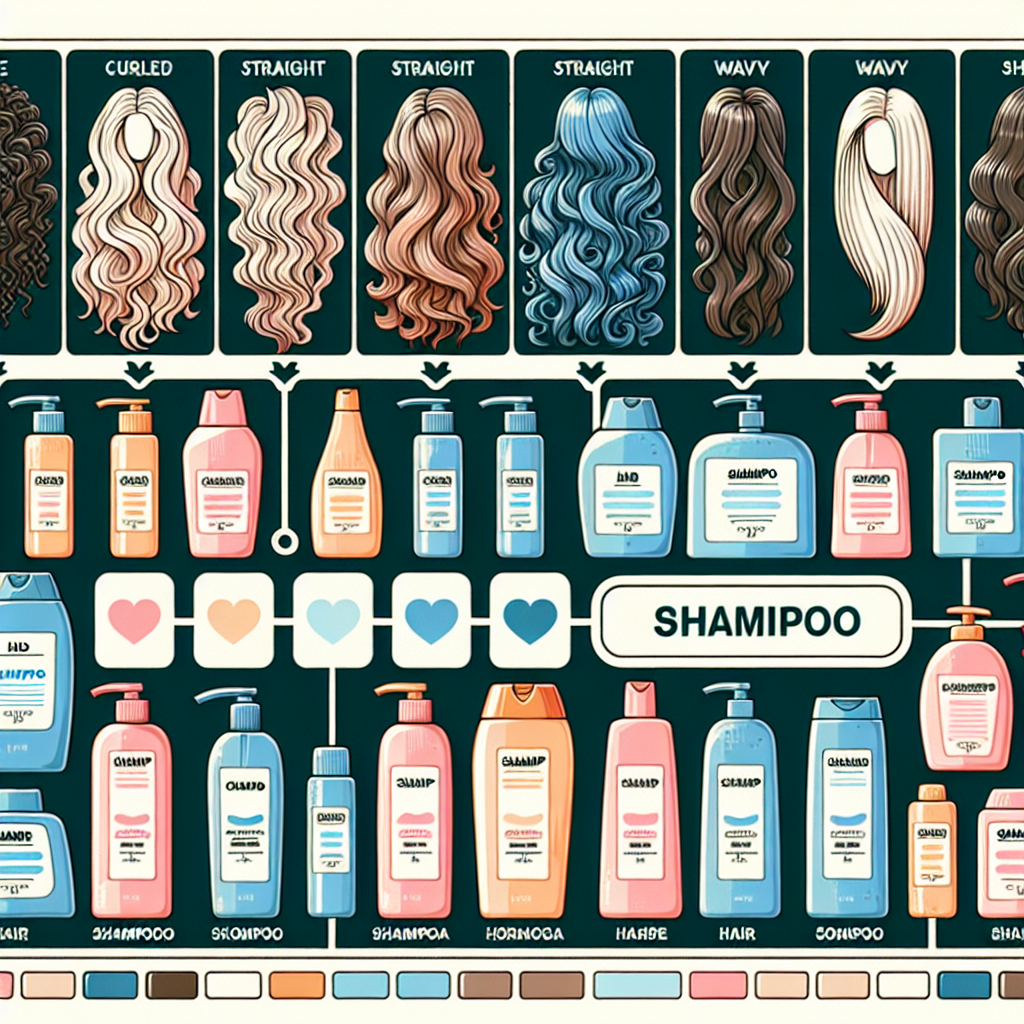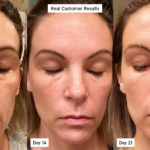-
Table of Contents
“Unlock Your Hair’s Potential: Find the Perfect Shampoo for Your Unique Hair Type”
Introduction

Choosing the right shampoo for your hair type is essential for maintaining healthy, vibrant hair. With a myriad of options available, it can be overwhelming to determine which product best suits your needs. Understanding your hair type—whether it’s oily, dry, curly, straight, color-treated, or prone to dandruff—is the first step in selecting the appropriate shampoo. This guide will help you navigate the various factors to consider, such as ingredients, scalp condition, and specific hair concerns, ensuring you make an informed decision that enhances your hair’s natural beauty and health.
Understanding Your Hair Type: A Guide to Identifying Your Hair Needs
Choosing the right shampoo for your hair type can be a daunting task, especially with the myriad of options available on the market. Understanding your hair type is the first crucial step in identifying your hair needs and ensuring that you select a product that will enhance the health and appearance of your locks. To begin with, it is essential to recognize that hair types can be broadly categorized into several groups: straight, wavy, curly, and coily. Each of these types has unique characteristics and requires specific care to maintain its natural beauty.
Straight hair, for instance, tends to be more prone to oiliness because the natural oils from the scalp can easily travel down the hair shaft. If you have straight hair, you might find that it becomes greasy quickly, necessitating frequent washing. In this case, a clarifying shampoo that effectively removes excess oil without stripping the hair of its natural moisture would be ideal. On the other hand, wavy hair often strikes a balance between straight and curly hair, with a tendency to frizz. A lightweight, hydrating shampoo can help manage frizz while maintaining the natural wave pattern.
Curly hair, characterized by its distinct ringlets, requires a different approach. This hair type is often drier because the natural oils from the scalp have a harder time traveling down the twists and turns of the hair shaft. Therefore, a moisturizing shampoo that provides ample hydration is crucial for maintaining the health and definition of curls. Additionally, look for shampoos that are sulfate-free, as sulfates can be particularly drying and damaging to curly hair.
Coily hair, which features tight curls or kinks, is the most fragile of all hair types. It is highly susceptible to breakage and requires a gentle touch. A nourishing shampoo with rich, emollient ingredients can help fortify coily hair and prevent breakage. Ingredients such as shea butter, coconut oil, and argan oil are particularly beneficial for this hair type, providing deep hydration and strengthening the hair shaft.
Beyond the basic hair types, it is also important to consider other factors such as scalp condition and any specific hair concerns you may have. For example, if you have a sensitive scalp, you might want to opt for a shampoo with soothing ingredients like aloe vera or chamomile. If you are dealing with dandruff, a medicated shampoo containing zinc pyrithione or ketoconazole can help alleviate flaking and itching.
Furthermore, color-treated hair requires special attention to maintain its vibrancy and prevent damage. Shampoos formulated for color-treated hair are designed to be gentle and often contain ingredients that help lock in color and protect against fading. Similarly, if you frequently use heat styling tools, a shampoo with heat-protectant properties can help shield your hair from thermal damage.
In conclusion, understanding your hair type and its specific needs is the key to selecting the right shampoo. By taking into account factors such as hair texture, scalp condition, and any particular concerns, you can make an informed choice that will enhance the health and appearance of your hair. Remember, the right shampoo can make a significant difference in your hair care routine, leading to stronger, shinier, and more manageable locks. So take the time to assess your hair type and choose a shampoo that caters to its unique requirements.
Ingredients to Look for in Shampoos Based on Hair Type
When it comes to choosing the right shampoo for your hair type, understanding the ingredients can make all the difference. The vast array of options on store shelves can be overwhelming, but knowing what to look for can simplify the process. For those with dry hair, ingredients like argan oil, shea butter, and glycerin are essential. These components are known for their moisturizing properties, helping to hydrate and nourish parched strands. Argan oil, often referred to as “liquid gold,” is rich in vitamins and antioxidants that can restore shine and softness. Shea butter, on the other hand, provides deep conditioning, while glycerin attracts moisture from the air, ensuring your hair remains hydrated throughout the day.
Transitioning to those with oily hair, the focus shifts to ingredients that can help control excess sebum production without stripping the hair of its natural oils. Look for shampoos containing tea tree oil, salicylic acid, or charcoal. Tea tree oil has natural antiseptic properties that can help cleanse the scalp and reduce oiliness. Salicylic acid, commonly found in skincare products, can also be beneficial for the scalp by exfoliating dead skin cells and preventing buildup. Charcoal, known for its detoxifying properties, can effectively absorb excess oil and impurities, leaving your hair feeling fresh and clean.
For individuals with color-treated hair, it’s crucial to choose shampoos that are gentle and sulfate-free. Sulfates, while effective at cleaning, can strip color and cause it to fade more quickly. Instead, opt for shampoos with ingredients like keratin, silk proteins, and UV filters. Keratin helps to strengthen and repair the hair shaft, which can be particularly beneficial for hair that has been chemically treated. Silk proteins add a layer of protection and shine, while UV filters help shield your hair from the sun’s damaging rays, preserving your color for longer.
Moving on to curly or textured hair, the key is to find ingredients that provide ample moisture and define curls without weighing them down. Coconut oil, aloe vera, and honey are excellent choices. Coconut oil penetrates the hair shaft to provide deep hydration and reduce frizz. Aloe vera is known for its soothing and moisturizing properties, making it ideal for maintaining the health of your scalp and hair. Honey, a natural humectant, attracts and retains moisture, ensuring your curls remain bouncy and well-defined.
For those with fine or thinning hair, volumizing ingredients are essential. Look for shampoos containing biotin, collagen, and panthenol. Biotin, a B-vitamin, is known to promote hair growth and strengthen hair strands. Collagen can help improve the elasticity and thickness of your hair, giving it a fuller appearance. Panthenol, also known as provitamin B5, adds volume by coating the hair shaft and making it appear thicker.
In conclusion, selecting the right shampoo for your hair type involves understanding the specific needs of your hair and choosing ingredients that address those needs. Whether you have dry, oily, color-treated, curly, or fine hair, there are shampoos formulated with ingredients that can help you achieve healthy, beautiful hair. By paying attention to these key ingredients, you can make an informed choice and ensure that your hair receives the care it deserves.
Common Mistakes to Avoid When Selecting a Shampoo for Your Hair Type
When it comes to selecting the right shampoo for your hair type, many people find themselves overwhelmed by the sheer number of options available on the market. This often leads to common mistakes that can result in less-than-ideal hair health. One of the most frequent errors is choosing a shampoo based solely on its fragrance or packaging. While a pleasant scent and attractive bottle can be appealing, they are not indicators of how well the product will work for your specific hair needs. Instead, it is crucial to focus on the ingredients and their benefits for your hair type.
Another common mistake is not considering your scalp condition. Many people focus solely on their hair strands, forgetting that a healthy scalp is the foundation for healthy hair. For instance, if you have an oily scalp but dry ends, you might need a balancing shampoo that can address both issues simultaneously. Ignoring the scalp can lead to problems such as dandruff, itchiness, or even hair loss over time.
Additionally, people often fall into the trap of believing that more expensive shampoos are inherently better. While high-end products can offer excellent results, they are not always necessary for everyone. It is essential to read reviews and perhaps even consult a dermatologist to find a shampoo that suits your hair type without breaking the bank. Sometimes, drugstore brands can be just as effective as their pricier counterparts.
Furthermore, many individuals make the mistake of not switching up their shampoo routine. Hair can build up a tolerance to certain ingredients over time, making the product less effective. Rotating between a few different shampoos can help maintain the efficacy of each product. However, it is important to ensure that all the shampoos you use are suitable for your hair type to avoid any adverse effects.
Another pitfall to avoid is using shampoos with harsh chemicals. Ingredients like sulfates and parabens can strip your hair of its natural oils, leading to dryness and damage. Opting for shampoos with natural or organic ingredients can be a safer and more effective choice. Always read the ingredient list and do a bit of research to understand what you are putting on your hair.
Moreover, people often overlook the importance of matching their shampoo to their hair texture. For example, curly hair tends to be drier and more prone to frizz, so a moisturizing shampoo would be more beneficial. On the other hand, fine hair can get weighed down easily, so a volumizing shampoo might be a better option. Understanding your hair texture can significantly impact the effectiveness of the shampoo you choose.
Lastly, it is a mistake to ignore the specific needs of color-treated hair. If you have dyed your hair, it is essential to use a shampoo that is formulated to protect and maintain your color. Regular shampoos can strip the color and cause it to fade more quickly. Look for products that are labeled as color-safe to ensure that your hair remains vibrant and healthy.
In conclusion, choosing the right shampoo for your hair type involves more than just picking the first appealing bottle off the shelf. By avoiding these common mistakes—such as ignoring scalp health, falling for marketing gimmicks, and not considering your hair texture—you can make a more informed decision. Taking the time to understand your hair’s unique needs will lead to healthier, more beautiful hair in the long run.
Conclusion
Choosing the right shampoo for your hair type involves understanding your specific hair needs, such as whether your hair is oily, dry, curly, color-treated, or prone to dandruff. Look for shampoos that are formulated to address these specific concerns. For oily hair, opt for a clarifying shampoo; for dry hair, choose a moisturizing shampoo; for curly hair, select a sulfate-free, hydrating shampoo; for color-treated hair, use a color-safe shampoo; and for dandruff, pick an anti-dandruff shampoo with active ingredients like zinc pyrithione or ketoconazole. Always check the ingredient list to avoid harsh chemicals and consider consulting a dermatologist for personalized advice.


